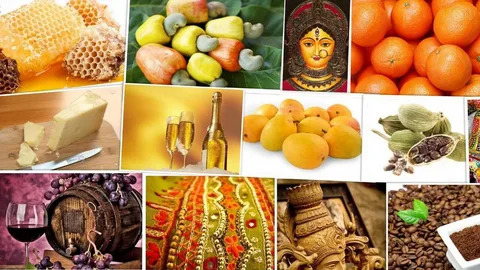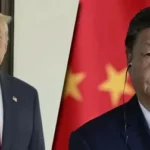Geographical indication (GI): In a bid to preserve and promote the unique characteristics of its national products, the UAE Ministry of Economy has launched a new initiative designed to protect locally produced goods. The initiative, which introduces the Geographical Indications system, aims to officially recognize and safeguard products whose qualities are intrinsically linked to specific geographical regions within the UAE.
This pioneering federal program is the first of its kind in the UAE, and it has been integrated into the national trademark law. This system establishes clear mechanisms for registering and protecting products that are geographically distinct, ensuring that consumers can trust the authenticity and quality of the products they purchase.
The Ministry of Economy explained that this system will prevent the misuse of geographic names and the products tied to them. The legal framework will help prevent counterfeit or imitation products from being marketed under the same name, providing consumers with greater confidence in the goods they are buying. This initiative also highlights the UAE’s commitment to strengthening its intellectual property (IP) framework and elevating its national identity on the global stage.
Read More: Bill Gates Commits to Doubling Charitable Giving to $200 Billion
Key Products Under Geographical indication Protection
This system applies to products that are distinctive due to their geographical origins, including food, handicrafts, and other locally produced items. Several UAE products have already been identified for inclusion under the Geographical indication framework, each celebrated for its unique attributes derived from specific regions in the country.
Among the products recognized under the new Geographical indication system are:
- Hatta Honey: Known for its exceptional quality, Hatta Honey is produced in the Hatta region, where the unique mountainous environment and traditional production methods contribute to its distinct taste and quality.
- Ras Al Khaimah Ceramics: These hand-crafted ceramics are celebrated for their centuries-old craftsmanship and their significance as one of the key exports of Ras Al Khaimah. The region has a long-standing tradition of ceramic production, making these products highly valuable.
- Dabbas Dates from Al Dhafra: These dates are renowned for their authentic agricultural qualities, and they have established a strong reputation within the Al Dhafra region. Their unique taste and texture are closely tied to the local environment and farming practices.
- Traditional Palm Frond Products: Representing the UAE’s rich artisanal heritage, palm frond products are handcrafted across various emirates. These items are symbolic of the traditional craftsmanship that has been passed down through generations in the country.
The Ministry of Economy has also indicated that an additional 25 products, ranging from food items to handicrafts, are currently under review for potential Geographical indication registration. By the end of the year, the total number of registered Geographical indication products is expected to reach six, with more to follow as the system grows.
Online Registration Now Open for Geographical indication Tagging
The Ministry has also launched an online registration service for producers to apply for Geographical indication tagging. The service is now open to both domestic and international producers, with guidelines in place to assess the geographical, natural, and traditional attributes of each product.
For products to qualify for Geographical indication registration, producers must demonstrate that their goods possess qualities that are a direct result of their geographical origin. The Ministry has emphasized that this registration process will be open to a wide range of products, further supporting local businesses and artisans in promoting their products to both local and international markets.
The introduction of the Geographical indication system is not just about safeguarding cultural heritage—it also aligns with the UAE’s broader sustainability goals and the United Nations’ Sustainable Development Goals (SDGs). Protecting these products is viewed as a means to stimulate local production, generate employment opportunities, and enhance the value chains of both traditional and modern industries.
Also Read: Abu Dhabi’s IHC and BlackRock Launch Exciting $1 Billion Reinsurance Company
Supporting Local Communities and Economic Diversification
This system is also expected to play a key role in the UAE’s economic diversification strategy, as outlined in the “We the UAE 2031” vision. Abdullah Ahmed Al Saleh, the Undersecretary of the Ministry of Economy, highlighted the importance of the initiative in transforming culturally significant products into valuable economic assets.
He noted that the Geographical indication system would help bolster local communities by encouraging the production of high-quality goods tied to specific regions. By registering these products, the UAE is creating a platform for these goods to be marketed globally, which in turn supports the economic growth of local businesses and contributes to job creation.
Al Saleh further emphasized that this initiative would reinforce the UAE’s national identity, both within the region and on the global stage, by showcasing the country’s unique products and the rich cultural heritage behind them.
In The End
The launch of this system in the UAE marks a significant step in the protection and promotion of locally produced goods. It not only helps preserve the authenticity of these products but also creates new economic opportunities for local communities, aligning with the UAE’s vision of a diversified and sustainable economy.
Follow 10X Times for more business news.






